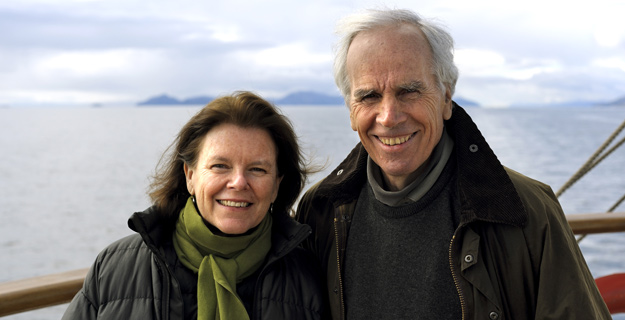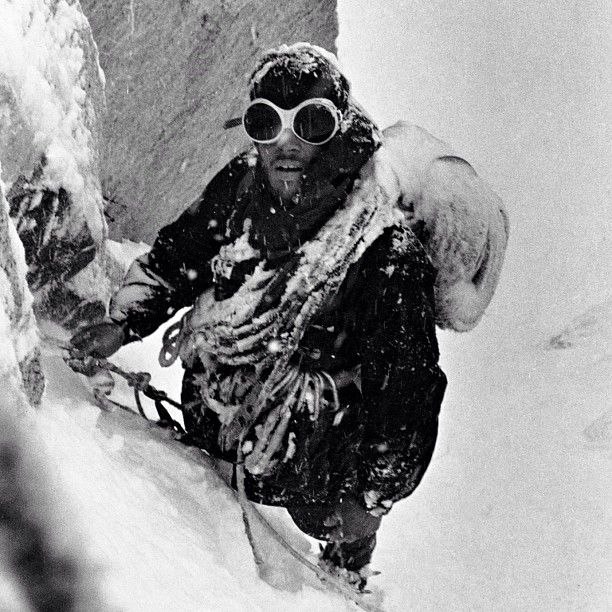
Learning that Doug Tompkins died tragically on Tuesday after his kayak capsized in the frigid waters of a lake in Chile took the wind out of me. I was not close to Doug. We met several times when I worked at Patagonia, Inc. Doug was a regular visitor to Patagonia’s Ventura campus along with his wife, Kris, who enjoyed a storied run as the company’s CEO. Doug’s passing is a blow because we have lost a pioneer whose values helped define what it meant to be a responsible leader in business.
Like his pal Yvon Chouinard, Doug took the skills and attributes he developed in the mountains and applied them to business. And like Yvon, Doug was not satisfied to merely do well in business. He wanted to make a much bigger mark on the world by protecting what’s left of our special wild places. Though he found most of his business success at Esprit, Doug’s influence is found on two of the outdoor industry’s most important brands, and incidentally, two of The Conservation Alliance’s founding members: The North Face and Patagonia. Doug founded The North Face as a Bay Area retail operation, setting in motion an iconic brand that has helped bring outdoor values to core athletes and the masses alike. Through his friendship with Yvon and Malinda Chouinard, and marriage to Kris, Doug had a meaningful though less direct impact on Patagonia. He was part of the legendary road trip to Patagonia (the region) that inspired the name for the clothing brand, and he surely played a role in Yvon’s thinking about the environment.
By the time I arrived to work at Patagonia, Doug was a phantom presence, having moved with Kris to Chile with the ambitious goal of protecting as much of the South American landscape as possible. He and Yvon had different approaches to addressing the environmental crisis. Yvon uses Patagonia as an example, and a funding mechanism to support grassroots activists working to save wild places worldwide. Doug and Kris use their fortune to purchase land directly, establishing parks throughout Chile and Argentina. I like to think that the two old friends had a running competition to determine who could do more good in the world. If so, Yvon will surely miss Doug’s constant pressure to do more.

I recently gave a talk at an Access Fund conference about climbers who went on to become great conservationists. The lineage is impressive, starting with John Muir who founded the Sierra Club, and who passed the torch to David Brower who turned the Club into a political force. Both spent enormous amounts of time climbing peaks and wandering in the North American Wilderness before turning their skills and passion to activism. Doug and Yvon have earned solid positions in that pedigree by leveraging their business success to save our wild places. (More recent additions to that rare company include Peter Metcalf and Conrad Anker). The point of my talk was to encourage the climbers in the room to take their climbing skills — preparation, boldness, good judgement, persistence — and use them for conservation. Doug sure did. With his passing, we lose a great leader, but we gain a permanent example of how to make a difference in the world. And I’m confident Kris will capably carry the torch of the work she and Doug did together for so long.
Our thoughts go out to Doug’s family and friends. He will be missed, but his positive impact on the outdoor industry and our wild landscapes is secure.

